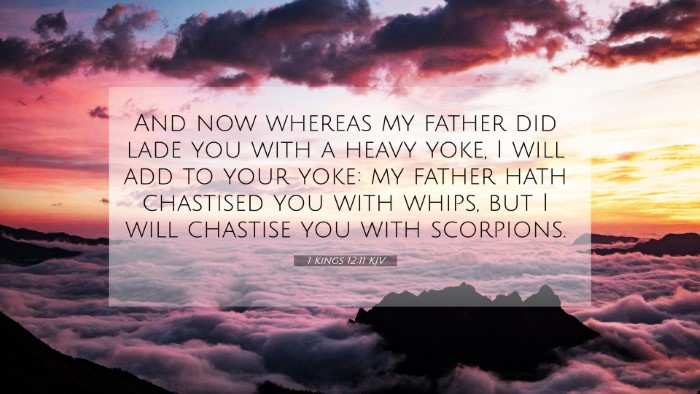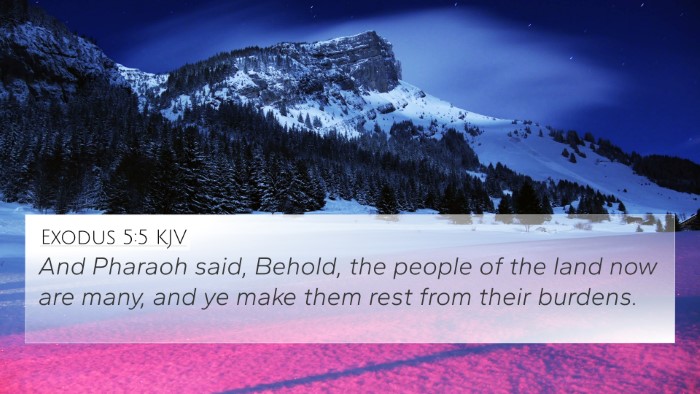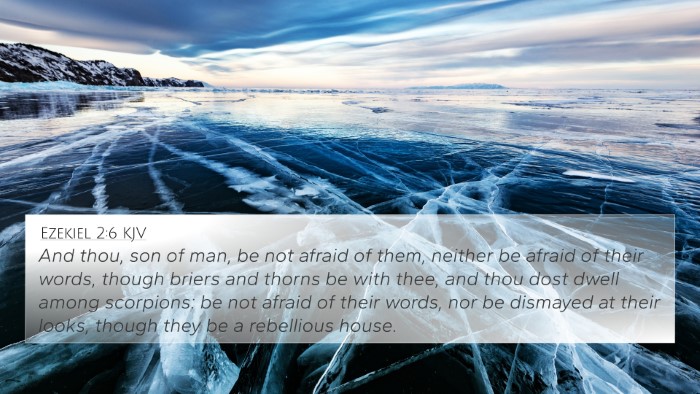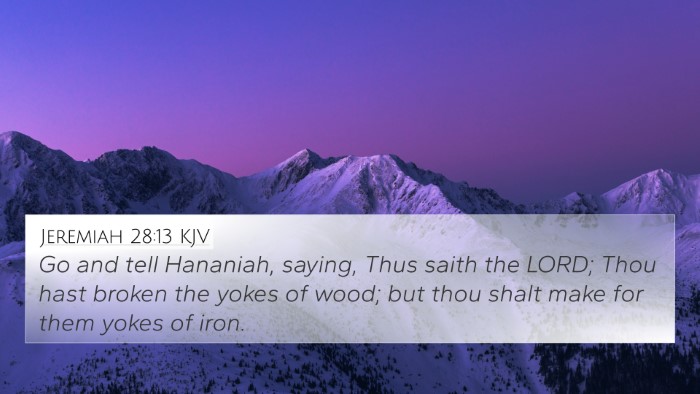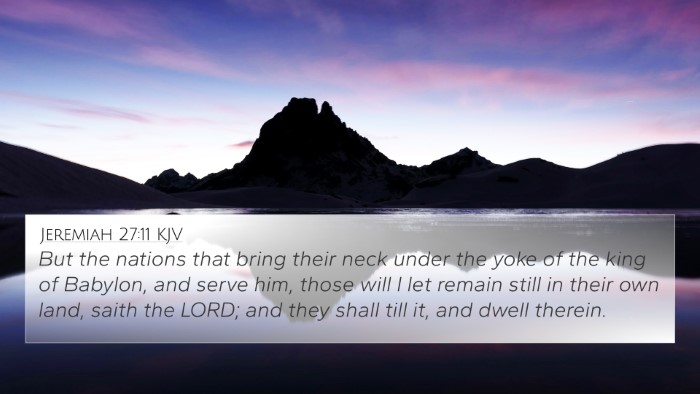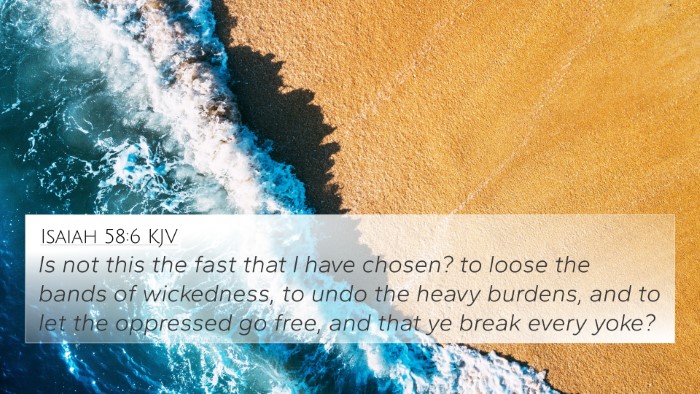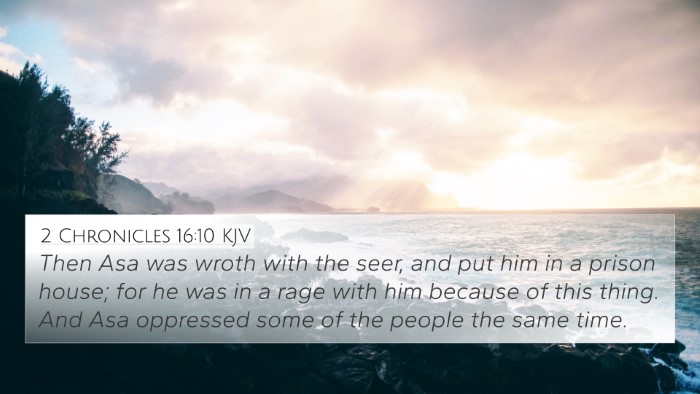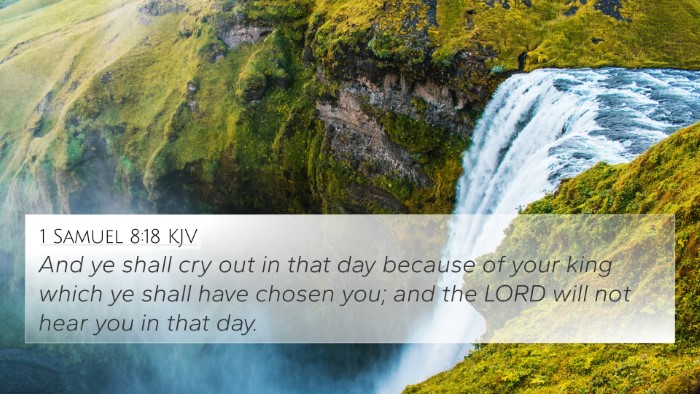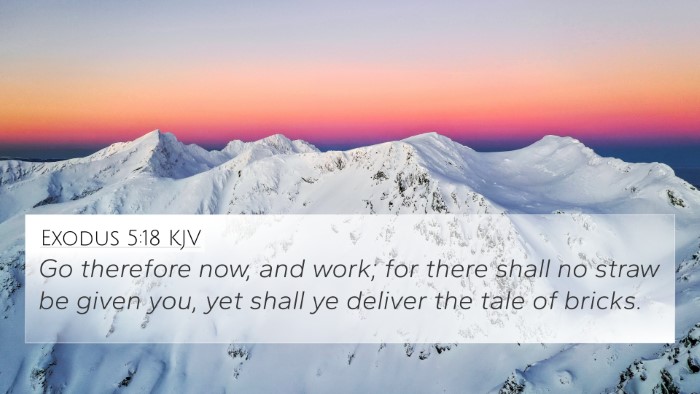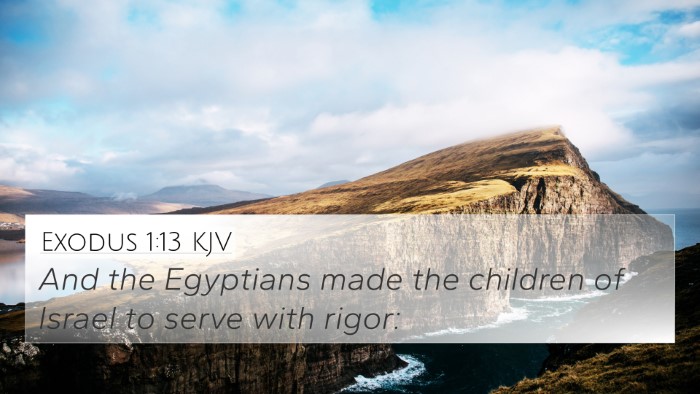Understanding 1 Kings 12:11
Verse: "And now whereas my father did lade you with a heavy yoke, I will add to your yoke: my father hath chastised you with whips, but I will chastise you with scorpions." - 1 Kings 12:11
Summary of 1 Kings 12:11
This verse portrays King Rehoboam's intentions concerning the burdens placed upon the people of Israel. Following the death of Solomon, Rehoboam faced the decision of how to govern. He refers to the previous "heavy yoke" that Solomon had imposed, implying his desire to further increase the burden of labor and taxation on the people. The reference to "whips" and "scorpions" symbolizes a more severe form of punishment or oppression.
Insights from Public Domain Commentaries
-
Matthew Henry:
Henry highlights the rashness of Rehoboam's decision, noting that he was more focused on exerting his power than understanding the needs and grievances of the people. His choice to threaten a harsher rule rather than seek counsel or compassion shows a pattern of pride and a disconnect from the reality of leadership.
-
Albert Barnes:
Barnes emphasizes the importance of leadership and the expectation of a ruler to guide with wisdom. He points out that Rehoboam's inclination to impose heavier burdens is a deviation from the principle of good governance, which should involve listening to the people and alleviating their hardships.
-
Adam Clarke:
Clarke discusses the psychological implications of Rehoboam's words, suggesting that by promising a more severe punishment, he aimed to assert dominance. He explains that such an approach could foster further dissent among the people. Clarke links this narrative to the broader theme of authority and accountability in leadership.
Biblical Cross-References
1 Kings 12:11 correlates with several other scriptures that enhance our understanding of leadership, oppression, and consequences of governance:
- 1 Kings 12:4: Demonstrates the people's request for relief from the burdens imposed by Solomon.
- 2 Chronicles 10:4: Offers a parallel account of the people's appeal to Rehoboam.
- Exodus 1:11-14: Reflects on the oppression of the Israelites in Egypt, drawing a comparison to the heavy yoke discussion.
- Matthew 20:25-28: Jesus teaches on humility and leadership contrary to lording authority over others.
- James 3:1: Warns about the stricter judgment that awaits teachers and leaders.
- Isaiah 9:4: References the promise of deliverance from oppression, highlighting contrasts with Rehoboam’s governance.
- Proverbs 29:2: States that when the righteous are in authority, people rejoice, implying the negative effects of poor leadership.
Thematic Connections
This verse provides a profound insight into the themes of leadership, governance, and the consequences of authoritative decision-making. The ensuing dialogue between the King and the people serves as an illustrative moment that communicates both the dangers of prideful leadership and the necessity for empathy and understanding in governance.
Inter-Biblical Dialogue
The choices made by Rehoboam echo throughout scripture, providing lessons regarding authority, responsibility, and the impact of leadership on communities. The following themes can be connected:
- Authority and Responsibility: Understanding the balance a leader must maintain between authority and the responsibility towards those governed.
- Consequences of Poor Leadership: Examination of how harsh governance leads to rebellion and division, as evident in subsequent historical outcomes for Israel.
- Seeking Counsel: The importance of wisdom and advice in decision-making, advised against the backdrop of Rehoboam’s disregard for counsel from elders.
- Empathy in Leadership: Recognizing popular sentiment and needs of the populace as a vital component for sustainable governance.
- Historical Redemption: Highlighting the hope for restoration and good leadership, contrasting with oppressive rule.
Conclusion
1 Kings 12:11 speaks powerfully about leadership styles and their implications for society. By analyzing this verse in conjunction with public domain commentaries and cross-references, we glean critical insights that promote a better understanding of governance. The dialogue established in this historical context prompts contemporary discussions on the nature and expectation of authority, urging leaders to serve rather than dominate.


